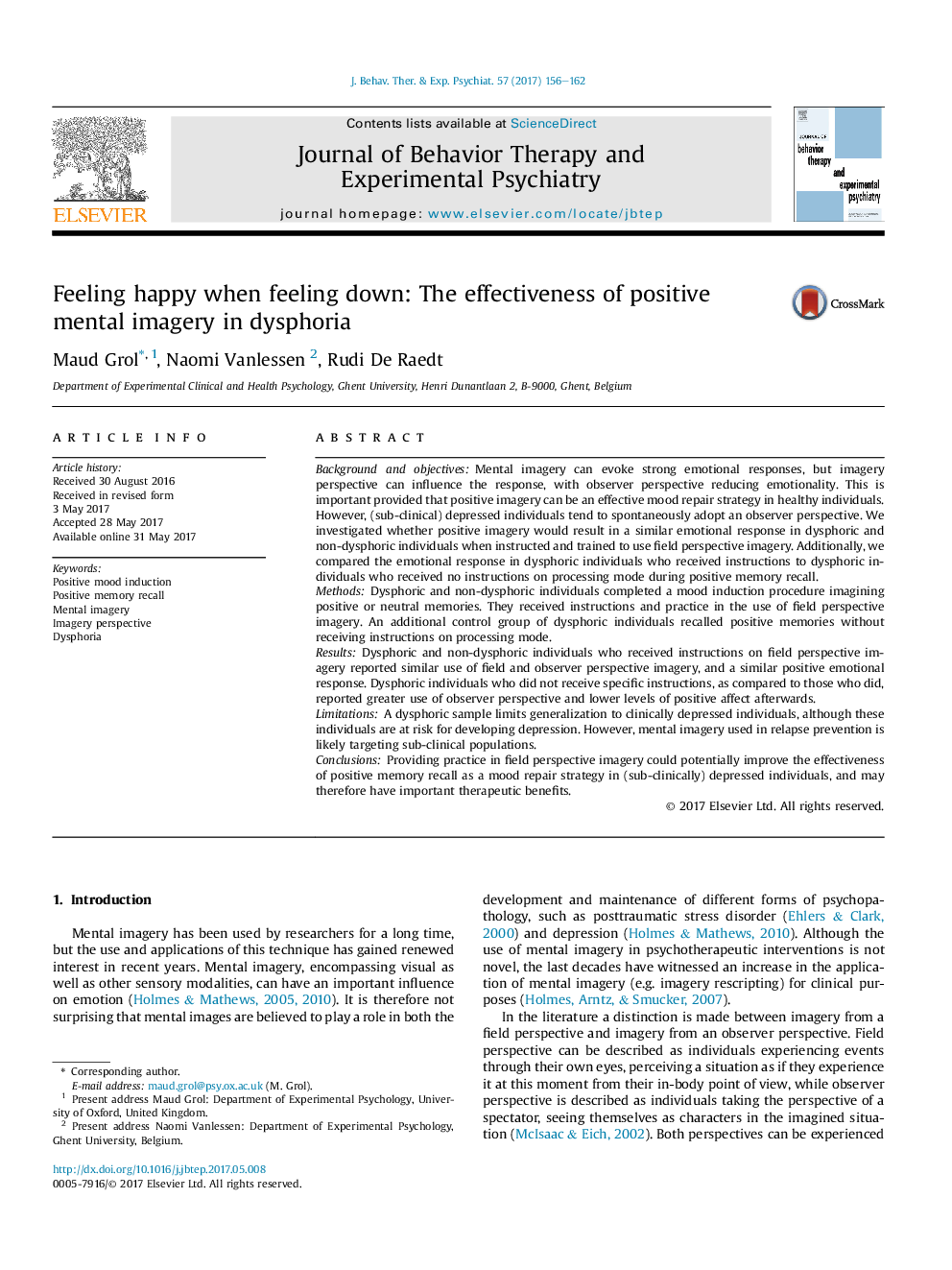| کد مقاله | کد نشریه | سال انتشار | مقاله انگلیسی | نسخه تمام متن |
|---|---|---|---|---|
| 5039017 | 1473059 | 2017 | 7 صفحه PDF | دانلود رایگان |
- Instructions on field perspective imagery results in similar emotional response.
- Dysphoric individuals tend to spontaneously use more observer perspective imagery.
- Instructions on field perspective imagery can influence the emotional response.
Background and objectivesMental imagery can evoke strong emotional responses, but imagery perspective can influence the response, with observer perspective reducing emotionality. This is important provided that positive imagery can be an effective mood repair strategy in healthy individuals. However, (sub-clinical) depressed individuals tend to spontaneously adopt an observer perspective. We investigated whether positive imagery would result in a similar emotional response in dysphoric and non-dysphoric individuals when instructed and trained to use field perspective imagery. Additionally, we compared the emotional response in dysphoric individuals who received instructions to dysphoric individuals who received no instructions on processing mode during positive memory recall.MethodsDysphoric and non-dysphoric individuals completed a mood induction procedure imagining positive or neutral memories. They received instructions and practice in the use of field perspective imagery. An additional control group of dysphoric individuals recalled positive memories without receiving instructions on processing mode.ResultsDysphoric and non-dysphoric individuals who received instructions on field perspective imagery reported similar use of field and observer perspective imagery, and a similar positive emotional response. Dysphoric individuals who did not receive specific instructions, as compared to those who did, reported greater use of observer perspective and lower levels of positive affect afterwards.LimitationsA dysphoric sample limits generalization to clinically depressed individuals, although these individuals are at risk for developing depression. However, mental imagery used in relapse prevention is likely targeting sub-clinical populations.ConclusionsProviding practice in field perspective imagery could potentially improve the effectiveness of positive memory recall as a mood repair strategy in (sub-clinically) depressed individuals, and may therefore have important therapeutic benefits.
Journal: Journal of Behavior Therapy and Experimental Psychiatry - Volume 57, December 2017, Pages 156-162
